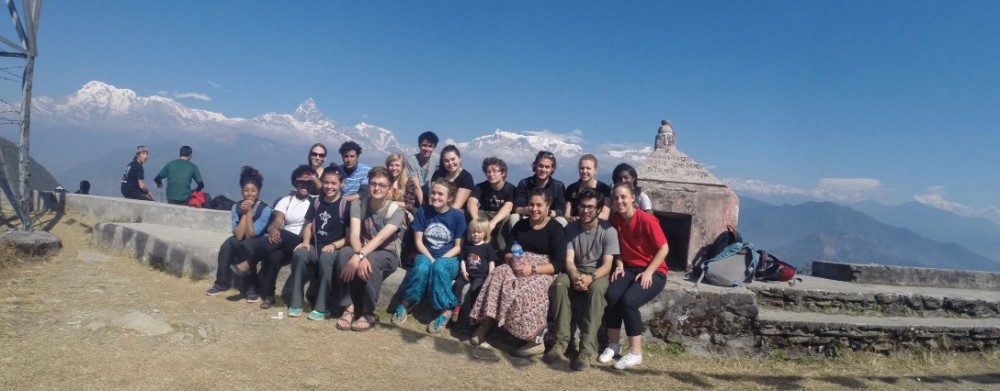Dear Sustainability,
These days, you are often regarded as a very modern and forward-thinking concept. Cutting-edge brands advertise their ‘sustainability’ on towering billboards and your name is plastered all over magazines and catalogues. One could even say you are becoming a trend of sorts in certain parts of the world.
Traveling through Nepal, however, has provided a very different perspective on the nature of sustainability. Up in the hills, villages understand and apply you as ancient cultures have for thousands of years in the way that they grow their own food, repair what breaks down, and build with local materials. On the flip side, Nepal’s large cities have clearly abandoned you in all forms, favoring instead a booming influx of westernized products, foods, and influences. With trash everywhere, and no means to properly dispose of it, the whole country is littered with scraps of garbage, and the stench of burning plastic fills the city air. The wooden temples of Kathmandu, for example, are littered with cans of Red Bull and crumpled Camel cigarettes. It seems as the population transitions from a traditional way of life to a more modern one, sustainability has been forgotten by a quickly expanding Nepal.
This great contrast seems quite worrying, but I think it also holds the key to Nepal’s successful development. In my opinion, there needs to be a balance between the traditional and the modern, mixing old with new, for Nepal to rise above its current problems. An excess of cheap goods and a booming population combined with a severe lack of health and education make Nepal a difficult place for you to thrive in right now. The people of Nepal recognize you within the context of a traditional, farming lifestyle, but they are not given the recourses to apply you to the big-city lifestyle, where the big malls and Lays chips produce constant streams of waste.
That’s why our work with the smokeless stoves, Beni’s recycled products, and all the other similar efforts are all so important for Nepal. It’s very a quickly developing country, and implementing sustainability is going to be a benchmark of success. As methods are developed to properly handle and reduce waste, Nepal will come closer and closer to becoming healthy and prosperous. It may take several decades, but with time, the country will understand and implement you in both the traditional and modern ways of life. This is something that needs to happen across the world, not just in Nepal, and it’s something that I personally hope to be involved with for the rest of my life.
Sincerely,
Zach

